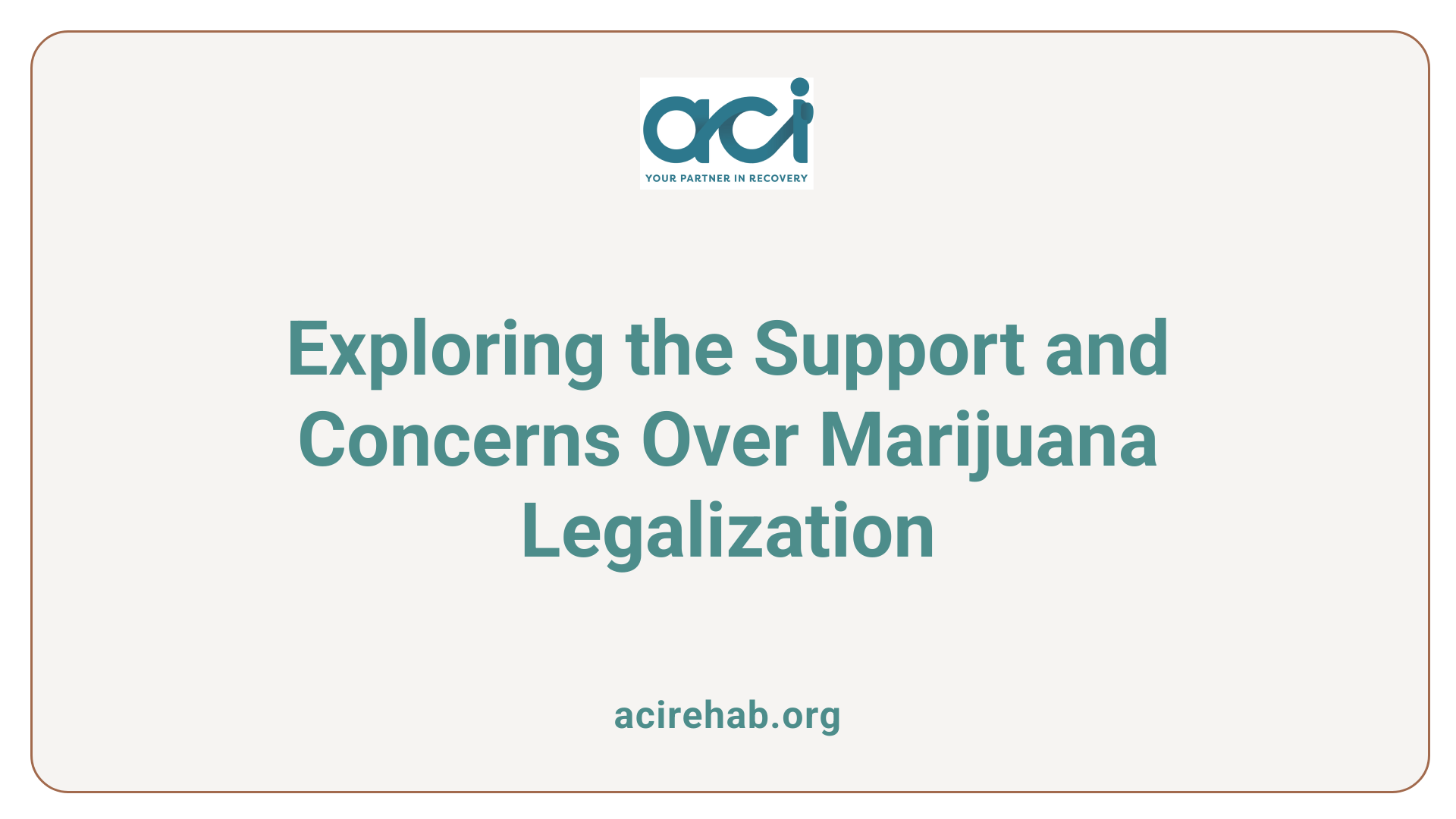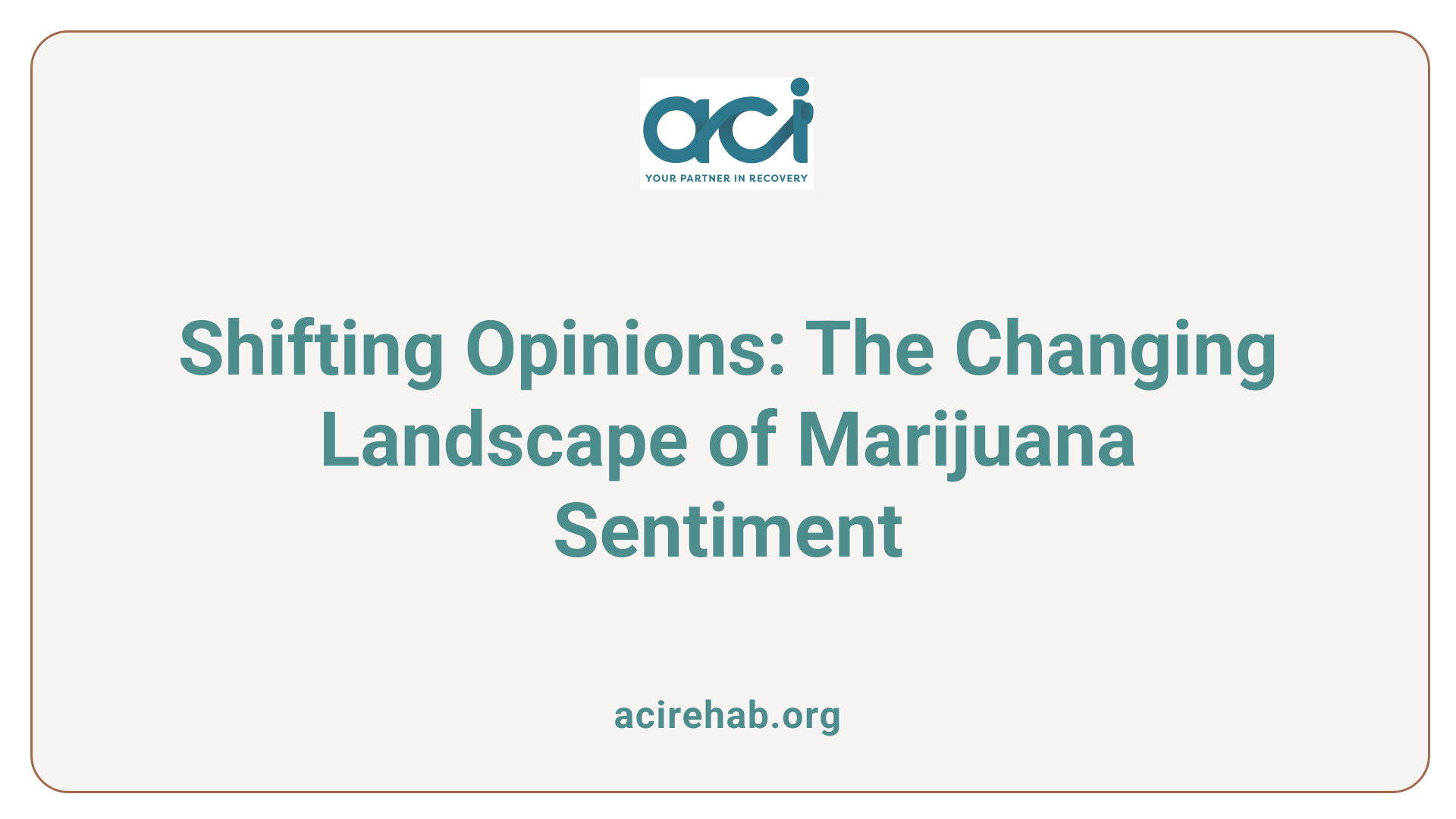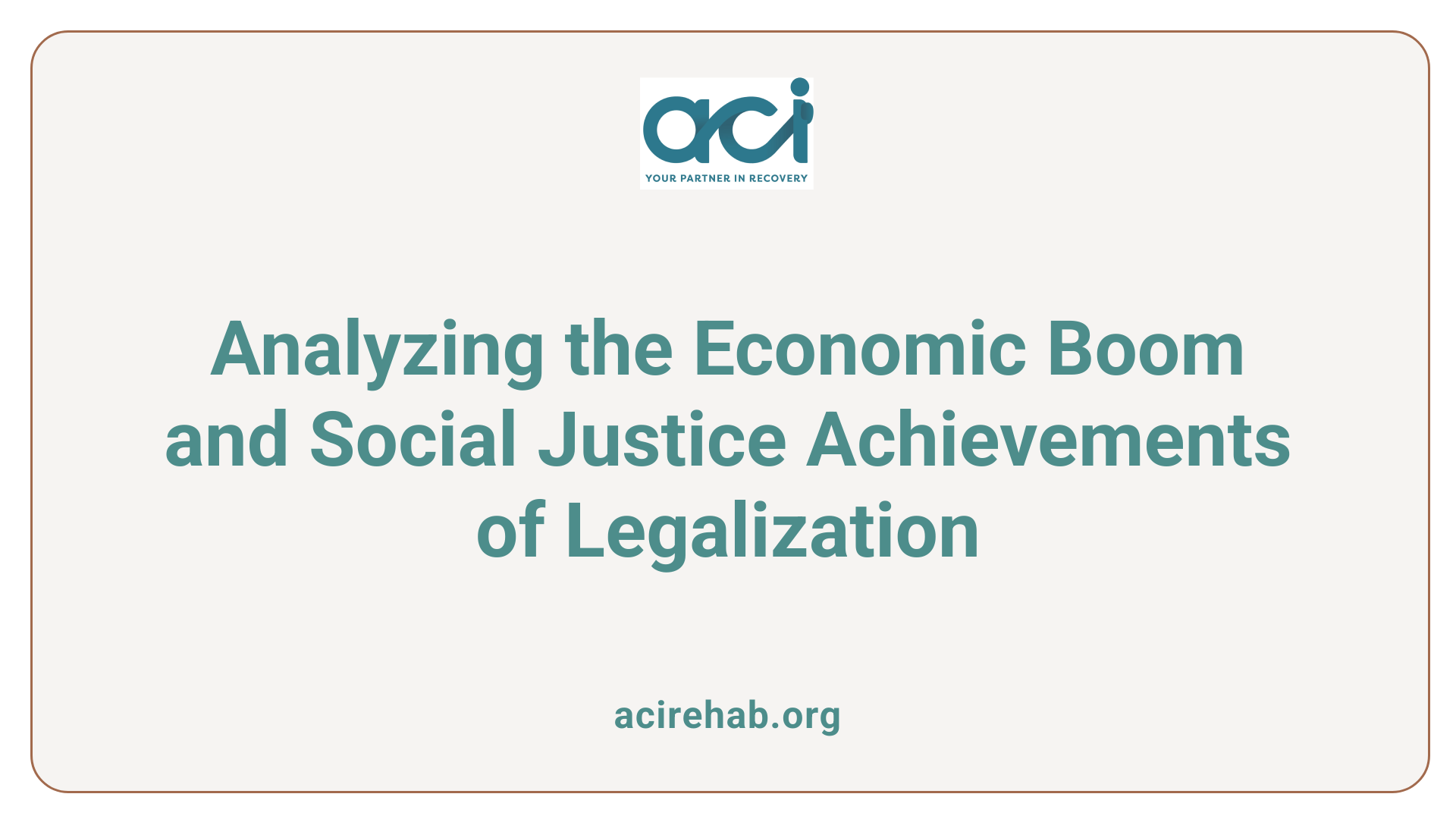A Nation Divided: Understanding the Landscape of Marijuana Legalization
Marijuana legalization remains one of the most contentious issues in U.S. policy, reflecting a myriad of perspectives and interests across the nation. With the increasing number of states shifting toward legalization either for medicinal use, recreational purposes, or both, the debate is characterized by its complexity involving economic, social, health, and legal dimensions. This article explores the various aspects of the ongoing dialogue and the implications of marijuana legalization, drawing on the latest data, public sentiment, and expert opinions.
The Arguments For and Against Marijuana Legalization

What Are the Arguments For and Against the Legalization of Marijuana?
Supporters of marijuana legalization present a variety of arguments that emphasize both economic and social benefits. Economically, they assert that legalizing marijuana can stimulate job creation and increase tax revenue. For instance, states like Colorado have reported substantial tax collections from legalized marijuana, contributing millions to local economies. Additionally, proponents highlight the potential for reducing crime rates and addressing racial disparities in drug enforcement, as legalization could alleviate the issue of biased policing associated with drug laws.
In terms of medical benefits, advocates point to marijuana’s effectiveness in alleviating conditions such as nausea from chemotherapy and pain relief for multiple sclerosis patients. Other users have found it helpful in stimulating appetite, particularly among those suffering from HIV/AIDS and certain cancers.
Conversely, opponents voice significant concerns regarding public health. They argue that frequent marijuana use can impair cognitive functions and exacerbate mental health issues such as anxiety or psychosis. The risk of developing Cannabis Use Disorder particularly affects vulnerable populations like adolescents, who may be more susceptible to the substance’s negative effects. Moreover, some individuals express concerns over marijuana’s long-term health implications, including potential addiction risks associated with its recreational use.
This nuanced discussion is essential as America sees increasing support for legalization, with 38 states legalizing medical cannabis and 23 permitting recreational use. Nevertheless, there remains a call for more comprehensive clinical trials to examine both the benefits and risks associated with marijuana use, ensuring informed decisions in public health and policy.
Public Sentiment and Demographic Trends

Shift in public opinion over time
Public opinion on marijuana legalization has experienced a remarkable transformation in recent years. In 2015, 53% of Americans favored legalizing marijuana, a significant increase from 32% in 2006. This shift reflects a broader societal acceptance and changing views toward cannabis, especially among younger generations. For instance, data indicates that 68% of Millennials (ages 18-34) support legalization, showcasing a generational divide.
Generational and political divides
The dynamics of support for legalization vary significantly across demographic lines. While Millennials are at the forefront with 68% approval, there is also a noticeable partisan divide; 64% of Democrats view legalization positively for local economies compared to just 41% of Republicans. Furthermore, the economic implications resonate more strongly with younger adults, where 71% believe it can positively impact local areas.
Impact on public policy and lawmaking
This growing public sentiment has encouraged states to pursue legalization policies. Currently, 38 states and Washington D.C. have legalized medical cannabis, and 23 states have approved recreational use. Economically, states like Colorado have seen substantial fiscal benefits, with tax revenues illustrating positive financial outcomes stemming from legalization. However, concerns about public health and potential societal impacts remain prevalent, especially regarding the effect of marijuana on young users.
What are some potential economic, social, and health effects of marijuana legalization?
Marijuana legalization can lead to significant economic benefits, such as increased tax revenue and job creation in the cannabis industry. However, it also poses health risks, particularly for young people, whose brains are susceptible to cognitive impairments and addiction. Early and frequent use of cannabis can result in long-term mental health issues. Additionally, the consumption of higher-strength cannabis products can exacerbate these risks, contributing to impaired driving and raising safety concerns. Socially, while legalization may reduce racial disparities in law enforcement, it presents regulatory challenges that must be addressed for effective oversight and community welfare.
Historical Context of Marijuana Legalization

Evolution of Marijuana Laws in the U.S.
The history of marijuana legalization in the United States reflects a long and complicated journey, marked by shifting public opinions and legislative responses. The earliest recorded use of cannabis dates back to 1619, when Virginia mandated hemp cultivation. However, the landscape changed drastically with the Marijuana Tax Act of 1937, which criminalized marijuana and set the stage for decades of prohibition.
Key Historical Milestones
Several milestones have punctuated the journey toward legalization:
- 1996: California becomes the first state to legalize marijuana for medical use, paving the way for future state initiatives.
- 2012: Colorado and Washington lead the charge by legalizing recreational marijuana, triggering a wave of similar legislation in other states.
- 2020s: As of now, 34 states and the District of Columbia have passed various forms of legalization, showcasing a significant societal shift in acceptance.
Shift from Prohibition to Acceptance
A notable transformation occurred as public opinion shifted towards support for marijuana legalization. In 2015, 53% of Americans favored legalization—up from only 32% in 2006. This change is especially prominent among younger generations, with 68% of Millennials supporting legalization. Currently, 88% of U.S. adults endorse legalizing marijuana for medical and recreational use, highlighting an overwhelmingly growing consensus.
How do state and federal laws conflict in terms of marijuana legalization?
State and federal laws conflict significantly regarding marijuana legalization due to the federal classification of marijuana as a Schedule I substance, which continues to deem it illegal despite state-level legalizations. As of now, 24 states and the District of Columbia have legalized marijuana for adult recreational use, creating a legal landscape where state laws directly contradict federal statutes. This discrepancy affects various aspects such as banking access, business operations, and law enforcement practices, as federal law restricts these areas related to cannabis. Furthermore, legal challenges at the state level continue to emerge, as seen in Florida, showcasing the ongoing tension between state initiatives and federal prohibitions. Despite proposals from the U.S. Department of Justice to potentially reclassify marijuana, the conflict persists, illustrating the complexity of the current legal framework surrounding cannabis in America.
Medical Use and Health Implications

Medicinal benefits and conditions treated
Marijuana’s medicinal use has gained acceptance, with 69% of doctors acknowledging its efficacy in treating certain medical conditions. It’s known to help alleviate nausea in chemotherapy patients, manage pain associated with multiple sclerosis, and stimulate appetite in individuals suffering from severe illnesses like HIV/AIDS. Support for marijuana as a medicinal option also reflects a significant portion of the population, with 88% of Americans advocating for its legalization for medical purposes.
Risks and public health concerns
Despite its potential benefits, the legalization of marijuana raises concerns about public health. Cannabis use disorder is a recognized condition that may lead to addiction, especially among younger users. Frequent use can impair learning, thinking, and memory, exacerbating mental health issues like psychosis and addiction. Critics often cite these risks, emphasizing the need for monitoring its impact on youth and potential long-term cognitive effects.
Ongoing research and clinical trials
While some medicinal applications of cannabis are well-documented, many claims remain unproven. Research is ongoing to validate various medical benefits and evaluate safety, given the lack of FDA-approved cannabis products. Experts argue for more comprehensive studies to better understand the health implications of state-level cannabis policies, underscoring the necessity of robust evidence before widespread endorsement of legalization.
Economic and Social Impact of Legalization

Tax Revenue Generation
Marijuana legalization has emerged as a pivotal economic consideration. Legal sales of marijuana in states such as Colorado have already led to substantial tax revenue—$153 million is projected for a coming fiscal year alone. Nationally, economists like Jeffrey A. Miron estimate that the federal government could save $8.7 billion by legalizing marijuana while generating about $46.7 billion in tax revenues akin to that of tobacco and alcohol.
Job Market Impact
Beyond tax revenues, marijuana legalization creates job opportunities in cultivation, distribution, and retail. A robust legal cannabis market not only contributes to job creation but also stimulates related sectors, such as agriculture and logistics, enhancing overall economic activity within these communities.
Social Justice Implications
Legalizing marijuana presents significant social justice benefits. It can reduce racial disparities in law enforcement, where prohibitive cannabis laws have disproportionately affected communities of color. There’s a growing sentiment, with approximately 42% of Americans believing that legalization makes the criminal justice system fairer. Moreover, proposed legislations suggest expunging past marijuana-related convictions, aiming to rectify injustices stemming from previous draconian drug policies.
| Aspect | Impact | Statistics |
|---|---|---|
| Tax Revenue | Expected increase in state tax revenue from legalized sales | $153 million in Colorado |
| Job Market | Job creation in cultivation and retail sectors | Boost across direct and indirect sectors |
| Social Justice | Reduction of racial disparities in arrest rates and expungement of records | 42% agree on fairness |
Navigating the Legal Landscape
State vs. Federal Law Conflicts
The legal status of marijuana in the United States is complex, with significant conflicts between state and federal laws. While 34 states and Washington, D.C. have legalized marijuana in some form, including recreational and medical use, federal law classifies it as a Schedule I controlled substance. This designation indicates that marijuana is considered to have a high potential for abuse and no accepted medical use, complicating research and legalization efforts.
Legislative Efforts and Reform
Recent legislative discussions have centered around the ongoing debate to reform federal marijuana laws. The House of Representatives has been considering bills to legalize marijuana and expunge past cannabis-related convictions. Proponents argue that legalization can mitigate racial disparities caused by previous enforcement policies, as Black Americans are disproportionately affected by marijuana convictions.
Challenges in Regulation
Challenges also arise in regulating the cannabis industry effectively. For instance, concerns around illegal markets that undermine tax revenues from legalized sales persist. Critics argue that these illegal activities could result in increased cartel activity and criminal offenses. With public opinion increasingly supporting legalization, the challenge remains to create effective regulation frameworks that ensure safety and address the disparities caused by earlier drug policies.
The Science Behind Cannabis Use and Risks
Cannabis Use Disorder
Cannabis use disorder is recognized as a clinical diagnosis. Research indicates that about 9% of users become dependent, with higher rates observed among those who start using marijuana in adolescence. This dependency highlights the need for awareness regarding potential addiction risks associated with marijuana use.
Effects on Mental Health
Marijuana has been linked to various mental health issues, including cognitive impairments, with chronic use raising concerns about risks like psychosis. Studies show that early usage in adolescents could lead to long-lasting mental health challenges, prompting calls for more thorough research on its effects. Experts stress the importance of understanding these risks, particularly in young people who might perceive marijuana as less harmful due to legalization.
Potential Regulatory Benefits
Legalization allows for the regulation of cannabis, which can improve consumer safety through quality control. It also provides an opportunity to address social equity issues related to past enforcement practices. Legal markets may reduce complications associated with illegal sales and could potentially diminish the stigma around cannabis use, making it easier to approach health concerns professionally.
The Path Forward: Legislative and Societal Evolution
What is the controversy surrounding the legalization of marijuana?
The controversy surrounding the legalization of marijuana centers on its health, legal, and societal impacts. Opponents highlight empirical studies indicating significant adverse effects on both physical and mental health, which raise concerns about increased risks for conditions such as schizophrenia and substance use disorders, especially among adolescents. While some cannabinoids have established medical benefits, unprocessed cannabis is often perceived as carrying more risks than benefits.
Additionally, the legal landscape remains complex, with cannabis decriminalized in many states but still classified as a Schedule I drug federally, complicating regulation efforts. As cultural attitudes shift towards greater acceptance—evidenced by increasing public support for legalization—the debate continues to emphasize the necessity for rigorous safety and efficacy standards in marijuana legislation.
Future of marijuana legislation
Future marijuana legislation is likely to explore both recreational and medical availability as states and federal bodies grapple with an evolving legal framework. As public sentiment increasingly favors legalization, key legislative discussions focus on regulating usage and addressing social equity implications following years of racially biased enforcement.
Shifts in public policy
From just 32% support in 2006 to as high as 88% in more recent surveys, public policy has dramatically shifted towards acceptance of marijuana use. Nearly 59% of people believe the federal government should not enforce laws in states that have legalized it, which underscores a major trend toward state autonomy in cannabis legislation.
Societal attitudes toward cannabis
Societal attitudes have evolved significantly, particularly among younger generations who view marijuana not only as less risky but also as beneficial for social equity and economic growth. Millennials exhibit higher support levels for legalization, reflecting a marked shift that’s reshaping the dialogue around marijuana in America.
A Changing Dialogue: Approaches to Marijuana Legalization
The debate over marijuana legalization remains an intricate tapestry of legal challenges, public sentiment, and evolving policies. As states pave the way with their own legislation, the federal government faces increasing pressure to reconsider its stance. Society is gradually reshaping its views on cannabis, balancing potential economic benefits against health risks and societal impacts. The path forward requires careful consideration of regulatory frameworks and the commitment to a comprehensive understanding of marijuana’s role in modern society, underscoring a need for ongoing dialogue and thoughtful policy-making.
References
- Why Americans Support or Oppose Legalizing Marijuana
- Recreational Marijuana | Procs, Cons, Arguments, & Controversy
- Risks and Benefits of Legalized Cannabis | Johns Hopkins
- Should Marijuana Be Legalized? Things to Consider Before Voting
- Marijuana Legalization: Risks and Costs | Hazelden Betty Ford
- Pros and Cons of Legalizing Marijuana – Verywell Health
- Is Legalizing Marijuana a Mistake? – Open to Debate
- Legalizing Marijuana for Medical, Recreational Use Largely Favored …

